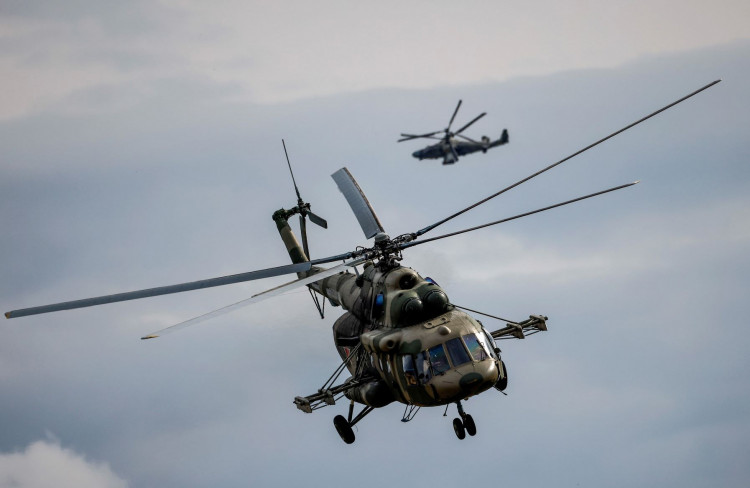The United States has indicated a strategic intensification of its military operations against Iran-backed groups across the region. This development follows a series of precise strikes executed by U.S. and British forces against Tehran-aligned factions in Iraq, Syria, and Yemen, in direct retaliation for the lethal assault on American troops stationed in Jordan.
The orchestrated military response underscores the Biden administration's resolute stance on safeguarding its personnel and interests abroad, amidst a complex web of regional conflicts that have seen various proxies engage in hostilities.
White House National Security Adviser Jake Sullivan, in a candid appearance on NBC's "Meet the Press," articulated the administration's firm resolve to counteract any threats posed by these militant groups.
"We intend to take additional strikes, and additional action, to continue to send a clear message that the United States will respond when our forces are attacked, when our people are killed," Sullivan remarked, highlighting the unequivocal message the U.S. seeks to convey through its military actions.
The recent surge in hostilities traces its roots back to October 7, when the Iran-backed Hamas faction launched a brazen offensive against Israel from the Gaza Strip, igniting a broader conflagration that has since drawn in various actors across the Middle East.
Tehran's support for groups such as Hezbollah, which has targeted Israeli positions along the Lebanese-Israeli border, and the Houthi rebels' aggressive maneuvers in the Red Sea, has significantly contributed to the regional turmoil. Yet, Iran has maintained a strategic distance from direct involvement in the conflict, despite its evident backing of these factions.
Amid these developments, U.S. Secretary of State Antony Blinken embarked on a crucial diplomatic mission to the Middle East, aiming to defuse tensions and foster dialogue on pivotal issues, including the delicate matter of hostages taken by Hamas and the ambitious U.S.-mediated initiative to normalize ties between Saudi Arabia and Israel.
The Biden administration's multifaceted approach, characterized by a combination of military deterrence and diplomatic outreach, reflects a nuanced strategy to address the myriad challenges confronting the Middle East. While the U.S. remains cautious to avoid a direct confrontation with Iran, the calculated strikes against its proxies signal a willingness to take decisive measures to protect American interests and promote regional stability.
As the international community closely monitors these unfolding events, the outcomes of the U.S. interventions are poised to have significant implications for the geopolitical dynamics of the Middle East. The administration's efforts to navigate these turbulent waters underscore the delicate balance between ensuring security and advancing diplomatic resolutions to the region's long-standing disputes.
In a statement reflecting on the strategic imperative of the military actions, Sullivan further elaborated, "I would not describe it as some open-ended military campaign," during an interview with CBS' "Face the Nation". He added, "This is the beginning, not the end, of our response, and there will be more steps - some seen, some perhaps unseen."
The discourse surrounding the U.S.'s military engagements in the Middle East extends beyond the realms of national security and into the broader considerations of international law and the principles governing state sovereignty. Iran's foreign ministry condemned the latest attacks on Yemen as "a flagrant violation of international law by the United States and Britain," underscoring the complex legal and ethical dimensions of these military interventions.
As the Biden administration continues to assert its stance in the Middle East through a combination of military might and diplomatic maneuvering, the global community remains attuned to the evolving situation, with the anticipation that these actions will pave the way towards a more stable and peaceful regional order.




